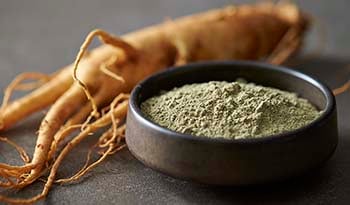Everything You Need to Know About Collagen Peptides
DISCLAIMER:This blog does not intend to provide diagnosis...
- In this article:
- What Do Peptides Do To Your Skin?
- What Are Topical Peptides?
- What Are Oral Peptides?
- So, Are Peptides Good For Your Skin?

You may have noticed that peptides, specifically collagen peptides, are making appearances in many popular skincare and supplement brands. Are they worth the hype? Let’s dive in.
What Do Peptides Do To Your Skin?
First, to understand why peptides are popular in the skincare world, we have to go into a bit of a science lesson.
Peptides are the building blocks of proteins. Peptides are chains of amino acids, linked together by peptide bonds. Shorter amino acid chains are called “oligopeptides,” and longer amino acid chains are called “polypeptides.”
Once there are one or more long chains of polypeptides, that’s when they become called “proteins.” Proteins, which we’ve all heard of, are involved in carrying out many functions in the body, including the skin. Some act as enzymes, whereas others are antibodies, transporters, and messengers, or structural components. Peptides can be categorized according to their roles, such as carrier peptides, signal peptides, or neurotransmitter peptides.
Carrier peptides help carry and deliver other active molecules that would otherwise be unstable. One example of this is that some of the first pharmaceutical peptides were designed to carry copper to promote wound healing in wounded tissue. Signal peptides work by influencing biologic responses, such as signaling cells to create more collagen and elastin. Neurotransmitter peptides act in a similar way as neuromodulators (i.e., Botox and Dysport) by blocking muscle contraction, which minimizes wrinkles, however, because the neurotransmitter peptides can’t pass through the skin like an injection, it is less likely to be effective. All these different types of peptides can be found in commercial cosmetic products.
In the skin, some of the key proteins you may have heard about include collagen and elastin. Collagen is the most abundant structural protein in the skin. Loss of collagen is associated with signs of aging. Degradation of collagen over time leads to volume loss in the face, leading to wrinkles and sagging. Damage to collagen and elastin from the sun and environment over a lifetime also contributes to the appearance of aging via changes in the skin’s texture, tone, and elasticity.
Collagen is a protein that is made up of three polypeptide chains that contain amino acids such as glycine, proline, and hydroxyproline. To make collagen in the skin, these amino acids and signal peptides must go through a series of enzymatic steps. Elastin is made up of alanine and lysine amino acids (among other amino acids) and is held together by other proteins and glycoproteins (sugar proteins).
This is all relevant to know because when you hear about peptide products targeted to the skin, they often refer to formulations that contain some form of collagen and/or its amino acid building blocks (like the ones I mentioned) or signal peptides that stimulate collagen production. If you look on the label, you will probably see some of those names from above listed in the ingredients.
The term hydrolyzed collagen refers to collagen that has been broken down into its peptide building blocks. Collagen products can be bovine (cow), porcine (pig), marine (fish and other invertebrates), or from other sources. The preferred source is generally marine collagen because it is more easily absorbed in the body and is less likely to have contaminants. One of my favorite brands of marine collagen supplements is Vital Proteins Wild Caught Marine Collagen.
What Are Topical Peptides?
Topical peptides are applied to the skin rather than ingested. These products are marketed for their antiaging, antioxidative, and hydrating effects. The theory is that because they are applied directly to the skin, the peptides may be more likely to be localized in the skin to boost collagen. The main issue with topical peptide products is that it may be difficult for them to penetrate through the skin barrier to get to the dermis, which is where they need to get to be effective.
To overcome this, some brands formulate their products to use peptides of smaller molecular size and an appropriate pH to help maximize the chances of absorption through the skin barrier. Using a peptide as a serum or moisturizer formulation may also improve the chances of penetration because of more prolonged contact with the skin compared to a cleanser that would be washed off. It can be difficult for the consumer to know if the product is capable of being absorbed through the skin and if it will be active because most cosmetic products aren’t vigorously studied.
What Are Oral Peptides?
Oral collagen peptide supplements have become very popular recently and are marketed for their anti-aging and antioxidative effects. The theory is that ingesting collagen or hydrolyzed collagen delivers peptides to the body so that it can produce more collagen. Some oral peptide products are formulated to contain signal peptides with the goal of stimulating collagen production and minimizing collagen breakdown.
Peptides are also reported to increase hyaluronic acid production, which enhances hydration of the skin and may offer some benefits in wound healing and sun protection. There is also some scientific literature that demonstrates that oral collagen supplementation supports healthy joints as well as muscle soreness and recovery.
My favorite way to incorporate oral collagen into my diet is by mixing the powder into my coffee in the morning. Other options for ingesting it include dissolving it into any hot or cold liquid, putting it into a smoothie, or taking it as a pill in capsule form. Another good option is California Gold Nutrition Hydrolyzed Marine Collagen Peptides since it is unflavored and therefore won’t change the taste of your morning drink.
The jury is still out in the scientific literature as to whether oral collagen peptide supplements actually work to meet these claims. Some studies do show benefits, whereas other studies are neutral. The good news is that based on the available scientific literature, it does seem like hydrolyzed collagen is absorbed readily from the gastrointestinal tract into the bloodstream. However, skeptics of oral collagen peptides would argue that there is no way of knowing whether the digested collagen actually gets preferentially sent to the skin, as opposed to being used in other parts of the body. Some studies have also shown improvement in hair texture, strength, and volume after oral collagen supplementation.
If you are interested in hearing about my personal experiences with oral collagen supplementation, I would say what I’ve noticed is that taking it daily does help me feel fuller after drinking it, and I do also think that my muscle soreness and recovery has improved after workouts. I haven’t noticed any major changes in my hair, skin, or nails; however, these changes likely would take longer to notice the effects because of the amount of time it takes to grow new hair and nails.
Oral collagen peptides are generally recognized as safe. If side effects occur, they are usually rare and mild and consist of acne, stomach upset, and/or headaches. As a rule of thumb, it’s a good idea to consult your physician before starting any new supplement, especially if you are pregnant, breastfeeding, or have other medical conditions. Because collagen supplements fall under the category of dietary supplements, they are not regulated by the Food and Drug Administration (FDA). As a result, sometimes it is difficult to know what the quality of the product is. This may be the reason why some studies show benefits from oral collagen peptide supplements, whereas others do not, because there may be differences in how the product is formulated. When choosing a product, you can see if it has been checked by a third-party tester such as the National Sanitation Foundation (NSF) or United States Pharmacopeial Convention (USP).
So, Are Peptides Good For Your Skin?
As you can see, natural peptides have many important roles in the skin, and collagen peptide products are interesting because they may help minimize the appearance of aging by improving wrinkles, texture, and hydration of the skin.
References:
- Aguirre-Cruz G, León-López A, Cruz-Gómez V, Jiménez-Alvarado R, Aguirre-Álvarez G. Collagen Hydrolysates for Skin Protection: Oral Administration and Topical Formulation. Antioxidants (Basel). 2020;9(2):181. Published 2020 Feb 22. doi:10.3390/antiox9020181. https://pubmed.ncbi.nlm.nih.gov/32098294/
- Bolognia, J., et al. Dermatology 4th Ed. Elsevier Limited. 2018
- Draelos, Z. What are cosmeceutical peptides? Dermatology Times. 2018; 39 (10). https://www.dermatologytimes.com/view/what-are-cosmeceutical-peptides
- Lupu MA, Gradisteanu Pircalabioru G, Chifiriuc MC, Albulescu R, Tanase C. Beneficial effects of food supplements based on hydrolyzed collagen for skin care (Review). Exp Ther Med. 2020;20(1):12-17. doi:10.3892/etm.2019.8342. https://www.ncbi.nlm.nih.gov/pmc/articles/PMC7271718/
- Wang JV, Schoenberg E, Saedi N, Ibrahim O. Platelet-rich Plasma, Collagen Peptides, and Stem Cells for Cutaneous Rejuvenation. J Clin Aesthet Dermatol. 2020;13(1):44-49. https://www.ncbi.nlm.nih.gov/pmc/articles/PMC7028374/

 By Dr. Afton (Chavez) Cobb M.D., F.A.A.D.
By Dr. Afton (Chavez) Cobb M.D., F.A.A.D.


